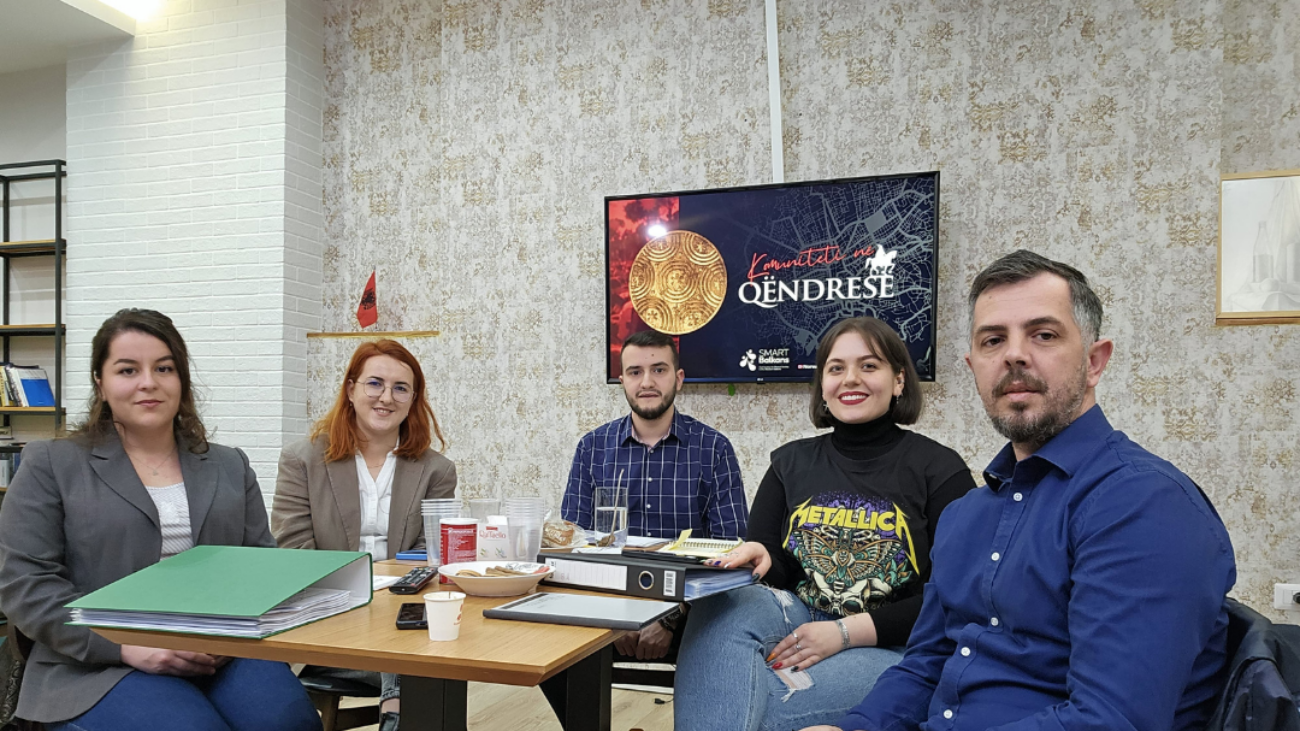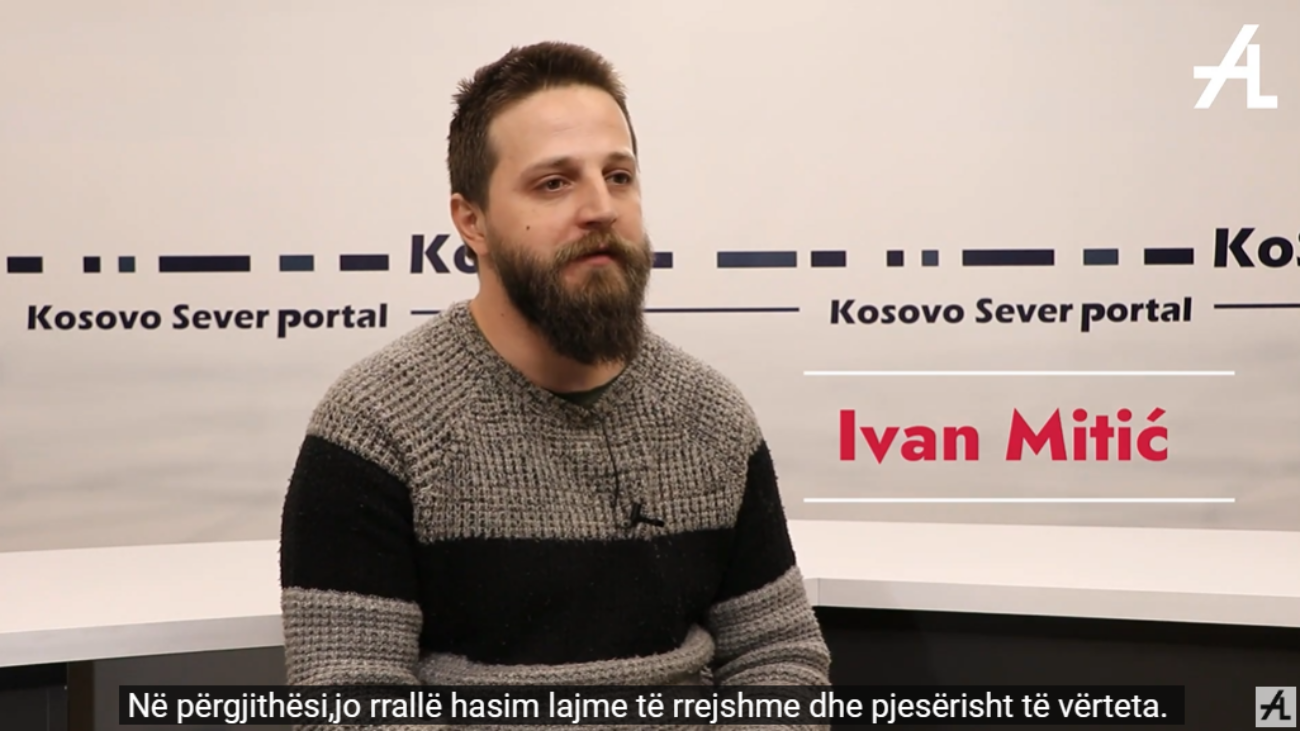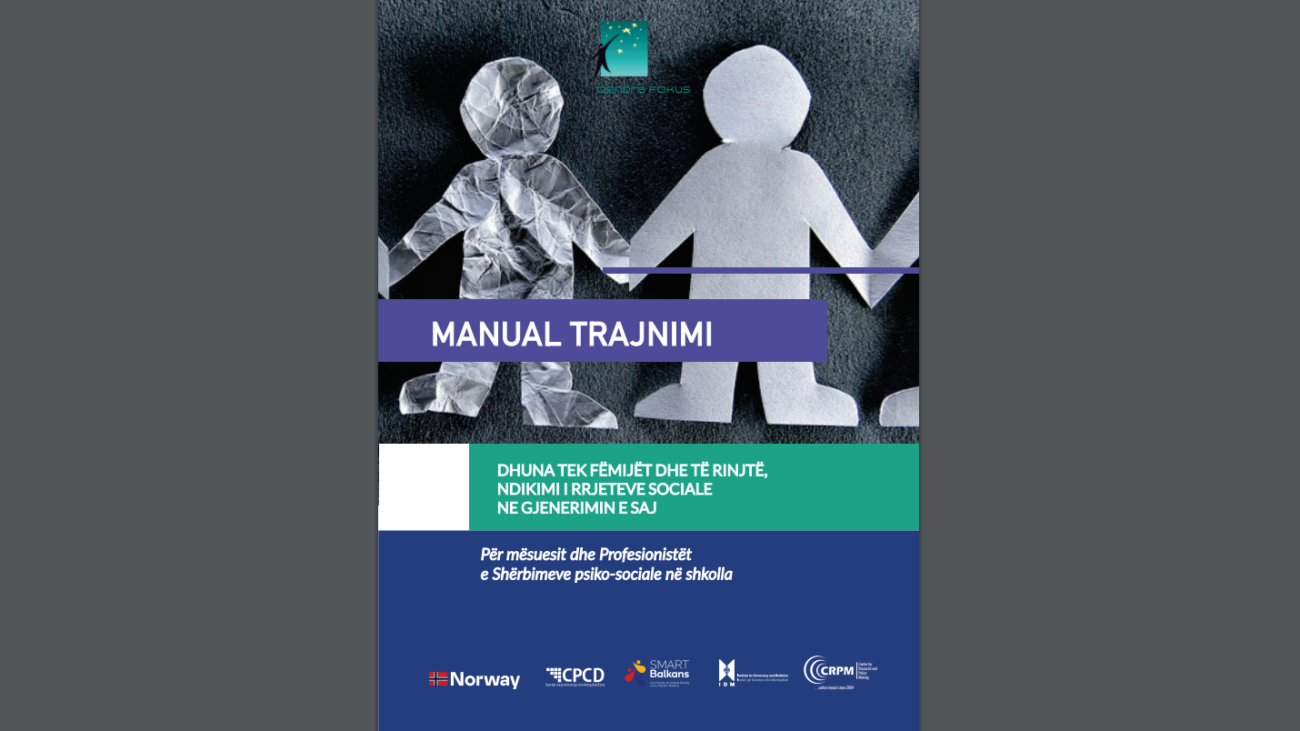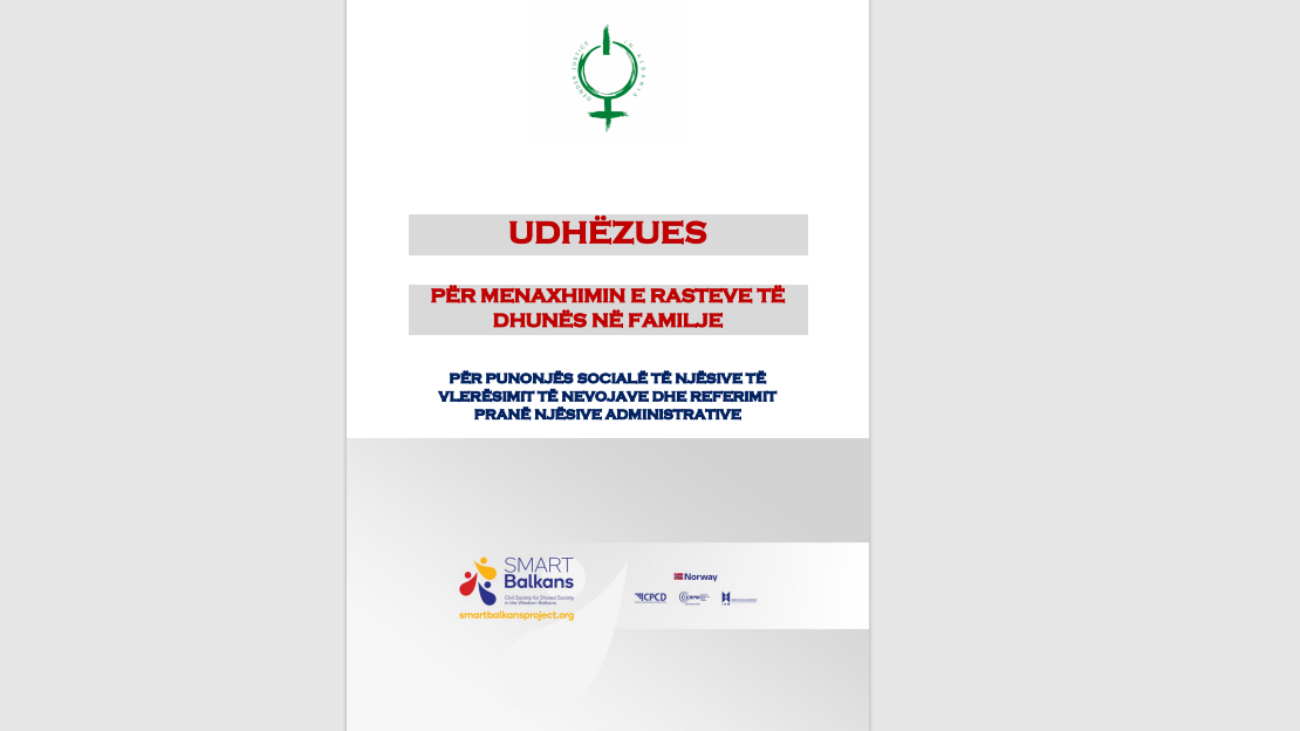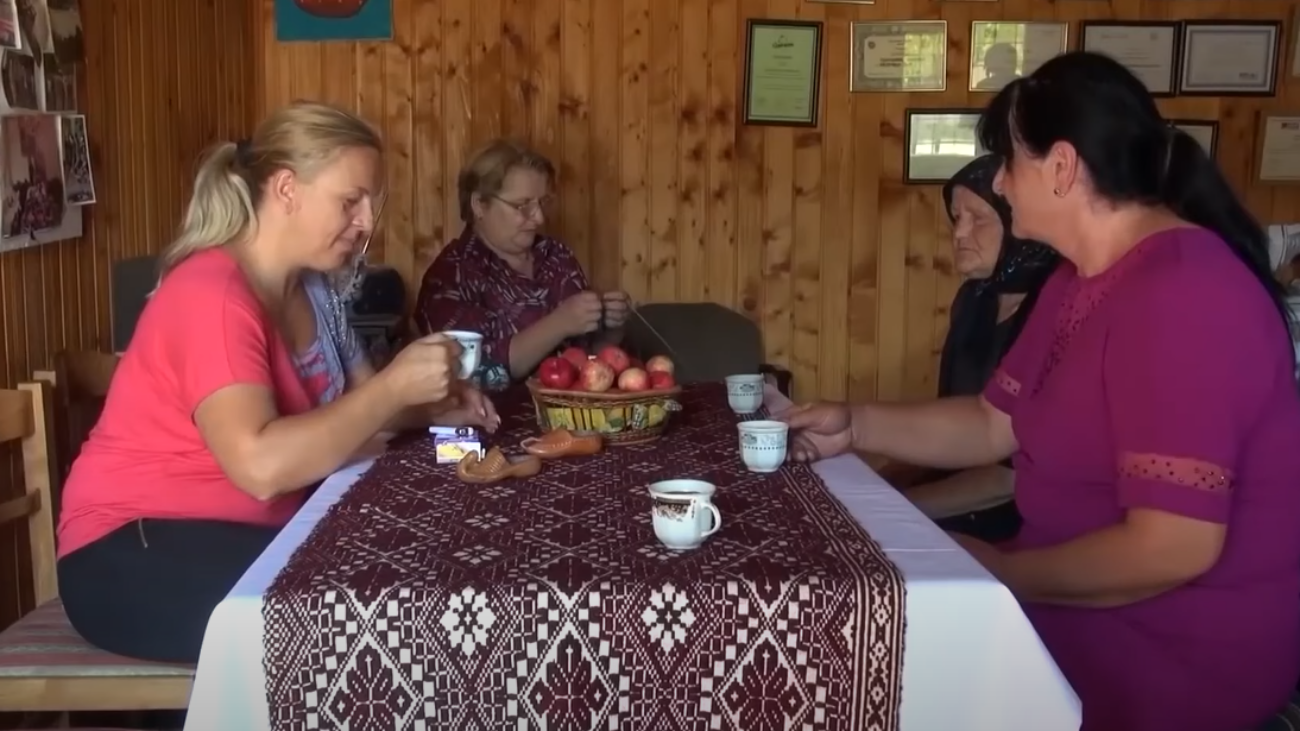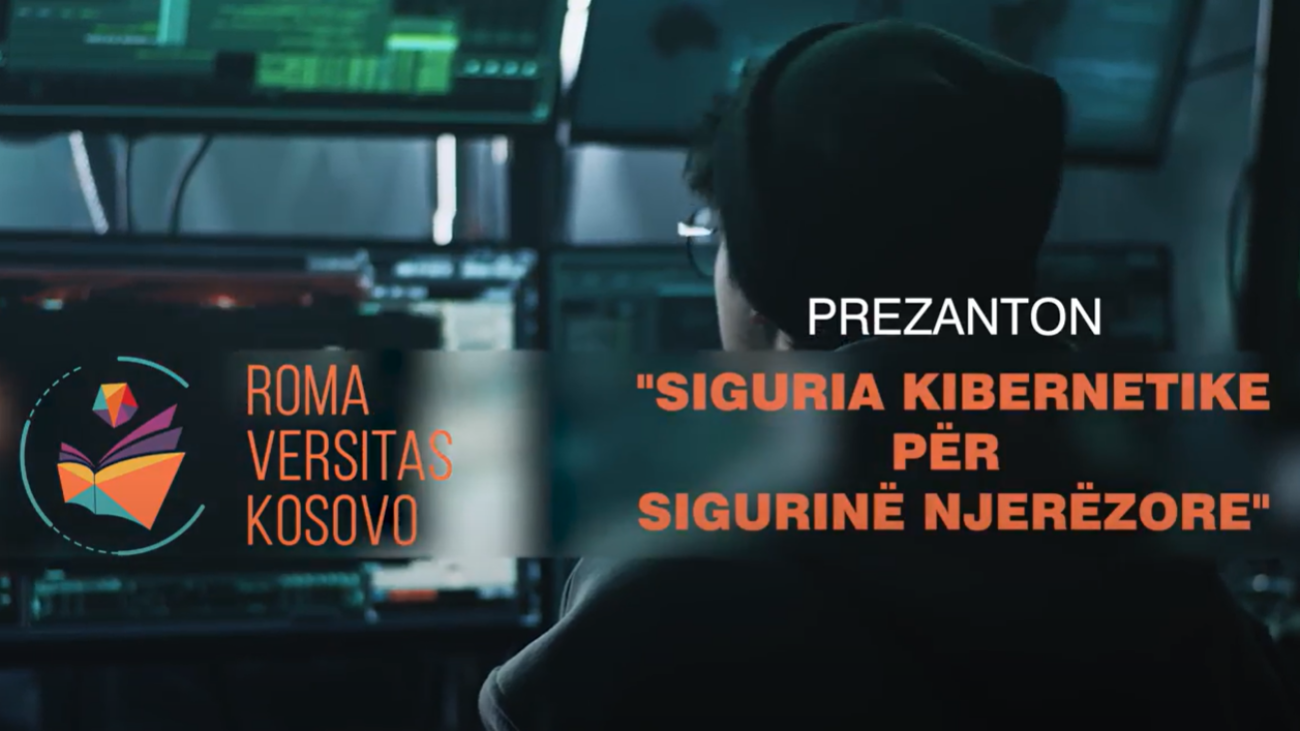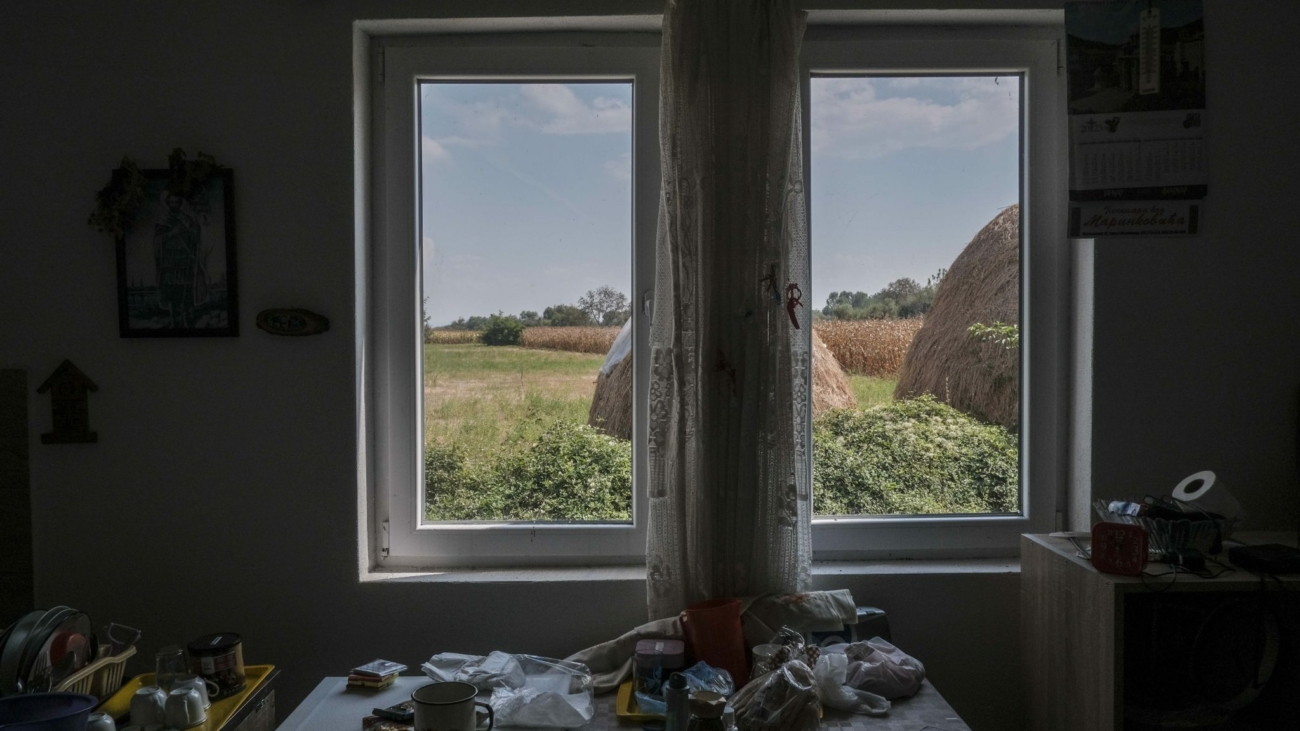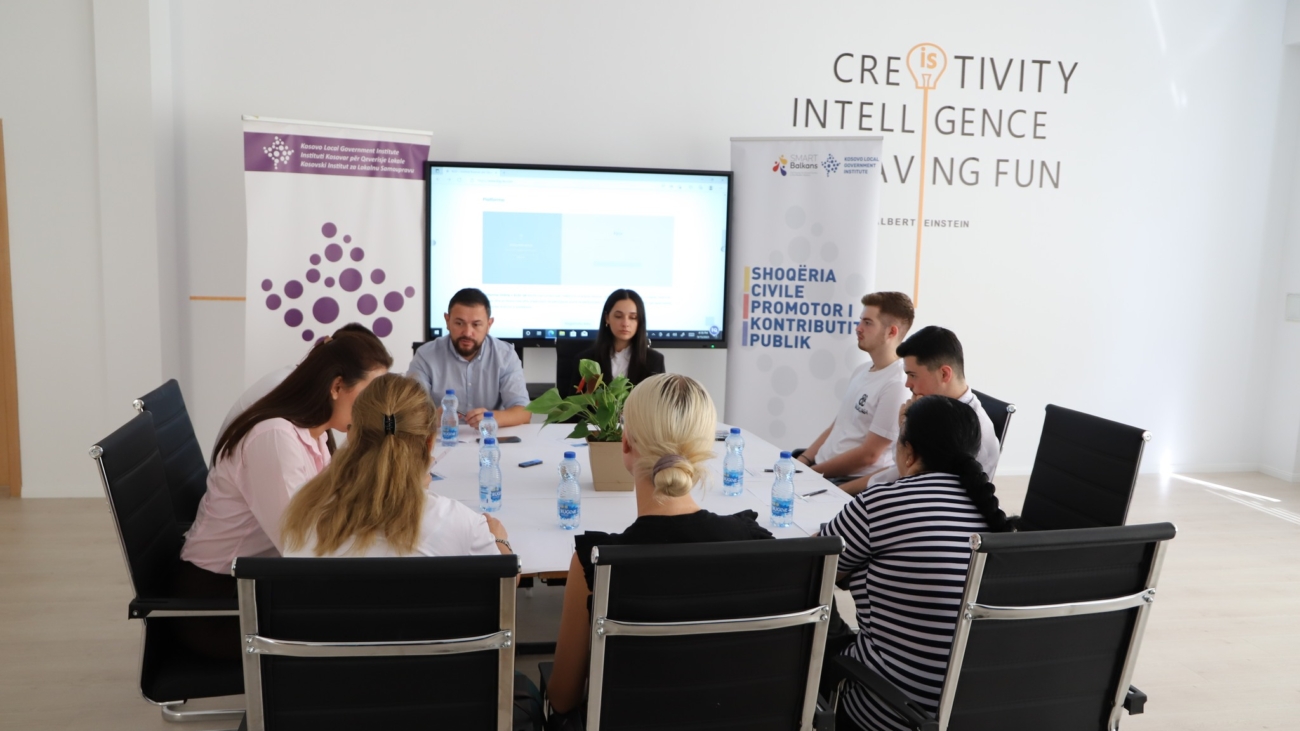Alternativno Udruzenje: A journalist’s take on fake news
Our cooperating partner Alternativno Udruzenje has emphasized the importance of collaboration between journalists and activists from different ethnicities in the fight against misinformation, which promotes hate and conflicts in Kosovo.
The project supported by SMART Balkans aimed to engage journalists in providing fair, accurate, and impartial information. High interest and sensitive topics such as ethnic, religious, or cultural differences often place journalists in front of verbal or physical attacks, aiming to stop broadcasts and the dissemination of fake news. Additionally, Alternativno Udruzenje intended to strengthen the role of activists in defending human rights.
Journalist Ivan Mitic shared his experience with fake news, explaining how misinformation compromises the integrity of the journalistic profession. Not only Mitic, but all interviewed journalists agree that fake news spreads rapidly and finds ground in social networks. This undoubtedly undermines trust in the media and poses a challenge for journalists in verifying every source of information. Fake news aims to increase online viewers, manipulate citizens according to political goals or interest groups. As a tool they use sensational headlines, especially in critical situations to sensationalize events and make them more appealing to the audience.
He pointed out that fake news can also be seen from another point of view, from the positive changes they bring to journalists. Journalists are more vigilant and careful, maintaining journalistic ethics even though they face an increasingly challenging job. In the region, fake news has a more violent impact, as critical situations develop day by day. The key point for combating this phenomenon is media education, so that citizens understand the source of information correctly, the professionalism of the media, and manifest as critical approach.
Watch the video for more tips on how to verify if the news is true: Alternativna: A journalist’s take on fake news.
Fokus Center: Training Manual “Violence against children and youth, the influence of social networks”
In every society, the behavior of parents and adults towards children is determined by the laws in force, the prevailing moral code of society, as well as the norms of behavior that society respects.
The number of children who got a Protection Order as victims of family violence in 2021 was 612 (288 males and 324 females). According to a study by Balkan Epidemiological Study on Child Abuse and Neglect, in Albania, around 12% of children are victims of sexual harassment, and about 5% of them are victims of sexual abuse.
Parents, caregivers, educators, and community members have the responsibility to nurture and support children and youth during their transition to adulthood. The pandemic changed family situations in many ways. With more than 55 million students transitioning to virtual learning and this method made it more difficult for teachers to identify possible abuses. Educators are often the first to discover and report potential issues. One of the factors that influences the perpetration of violence by students is direct exposure to violence, whether through video games or television. Despite the profound benefits of the Internet, children and young people can face a number of risks. They may be exposed to age-inappropriate content or inappropriate contacts, including potential perpetrators of sexual abuse. They also face online privacy risks arising from data collection, and the collection and use of location information.
We still remain a traditional society, which is based on solving problems through force. In most cases, those who abuse children are people close to them: parents, cousins, teachers and close family friends. Talking about sexual abuse teaches children about self-defense mechanisms and to know where to seek help. One of the signs of abuse is isolation and unwillingness to talk about what happened. Studies prove that an abused child who doesn’t get the services they need in a timely manner is more likely to suffer the consequences in the long run. Psychosocial counseling is a service offered by a professional counselor to an individual, family, or group with the aim of improving well-being, alleviating stress, and expanding coping abilities. Psychosocial counseling services typically involve psychosocial assessment, counseling intervention based on a counseling service plan, and post-counseling follow-up.
Counseling enables the child to express emotions, worries, thoughts, fears, etc. and aims to restore feelings of dignity and self-esteem. The child is helped to find solutions (strategies coping/problem-solving skills) through listening, empathizing, being supportive and understanding.
The manual provides guidance, information, and resources to help educators and professionals address and understand the impact of violence among children and youth, especially considering the role of social networks in shaping these behaviors.
Read the full document here: Training Manual “Violence against children and youth, the influence of social networks.”Training Manual “Violence against children and youth, the influence of social networks”
Center for Gender Justice in Albania: “Guideline for addressing domestic violence cases”
The social workers of administrative units play a crucial role in preventing gender-based domestic violence, minimizing its consequences, and preventing cases of femicide in the country.
Due to their daily interaction with the community, social service professionals are often the first point of contact with victims of domestic violence. Therefore, it is necessary for them to possess the necessary skills to identify red flags of domestic aggression, manage cases effectively, and refer them to relevant service-providing institutions based on the needs.
In accordance with Law 121/2016 “On Social Care Services in the Republic of Albania,” the structures that should be established and function at the municipal level to assist are a) structures responsible for social care services in municipalities and b) Needs Assessment and Referral Units established at the administrative level.
These units assist vulnerable groups in their operational territories and are particularly important in managing domestic violence cases since they are legally mandated implementing structures of local and national social policies, offering direct services to individuals in need. Despite being a legal obligation since the law’s approval in 2016, these units have not been established in every municipality. Up to now, these structures have primarily been established in larger municipalities. As part of this new structure, social workers need guidance and orientation in their work with domestic violence victims.
This document is formulated to be a practical aid for social workers to effectively handle domestic violence cases. Efficient work necessitates a thorough understanding of the legislation, as every action to protect victims must comply fully with legislative provisions. Therefore, a significant portion of this guide is dedicated to legal provisions related to domestic violence.
A victim of domestic violence can be any person, regardless of age, socio-economic status, education level, family or marital status, and certainly, regardless of gender. However, it is undeniable that women are much more at risk of domestic violence, and the dynamics of abuse differ compared to men. Global studies indicate that around 90% of domestic violence victims are women and girls. Moreover, women are more at risk of intimate partner homicides than men. For these reasons, this guide primarily addresses domestic violence perpetrated by men against women.
Compared to other vulnerable groups assisted by Needs Assessment and Referral Units, domestic violence victims carry inherent risks to their health, safety, and lives caused by another person. This has led to prioritizing issues in this guide such as the identification of risk factors and risk assessment.
For further details, you can read the publication here: Center for Gender Justice in Albania: “Guideline for addressing domestic violence cases” Guideline for addressing domestic violence cases
Gorazdevac Media Group: A limited number of women choose to accept their share of the inheritance
Our cooperating partner Gorazdevac Media Group draws focus to one relevant social issue particularly common in the Western Balkan. Although equal before the law, many women in the region still do not inherit property. There are many cases where they even voluntarily give up their familial portion to another member of their family.
“From my point of view, women have the right to inheritance. Whether a woman is married or not, we should consider ourselves equal. In rural areas, women are still in stagnation and hesitate to accept the inheritance that rightfully belongs to them, fearing conflicts with brothers or other relatives. I believe that there should be discussions with women so that they understand they need to emancipate themselves and know their rights” says Miroslavka Simonovic from NGO “Briga”.
She points out that a small percentage of women decide to take on a part of the inheritance and recalls a case where a brother, without informing his sisters, sold a property and was unwilling to share the profit with them. The sisters opposed this action, reported the issue and successfully claimed their rightful shares.
“When we compare the current situation with that of a few years ago, as I previously mentioned, there has been a modest improvement. In the past, claiming a portion of your brother’s share or your father’s land could lead to immediate avoidance and refusal to communicate” added Simonovic.
Women may avoid asserting their inheritance rights due to cultural norms that discourage challenging traditional family structures. They often prioritize family harmony over individual rights, not wanting to create conflict or tension with parents or brothers. Cultural expectations of dependence on parents, even after marriage, frequently prevent women from demanding their inheritance rights, as they may fear losing family support.
Other factors that contribute to the reduction in the number of women inheriting property are related to limited representation of women in decision-making bodies which diminishes their influence in shaping policies and practices related to inheritance rights. Also, property registered solely in the husband’s name can create legal issues for women to claim inheritance, reinforcing patriarchal structures. In this line, low levels of education among women may lower their awareness of legal rights and their ability to navigate complex legal procedures.
To address the issue of unequal inheritance rights for women, key steps include legal reforms, targeted awareness campaigns, and educational initiatives promoting gender equality. Collaboration among governmental bodies, NGOs, and stakeholders is essential to enforce legal changes. Moreover, media platforms can play a crucial role in challenging stereotypes and raising awareness. By combining these efforts, we can create sustainable change and correct the issue of unequal inheritance rights for women in the region.
Watch the full video here: Gorazdevac Media Group: A limited number of women choose to accept their share of the inheritance
Roma Versitas Kosovo: “Cybersecurity for human safety”
Our cooperating partner Roma Versitas Kosovo presents “Cybersecurity for human safety” which refers to the measures and practices implemented to protect individuals and their well-being in the digital world. This includes protecting personal data, preventing unauthorized access to systems, and mitigating potential risks and harm that may arise from cyber-attacks.
When addressing the communities and youth in Kosovo, it becomes evident that over 18,000 diverse issues have been reported related to the misuse of social networks, leading to legal problems. Among these issues, arrests have been made for the dissemination of false and hateful materials, unauthorized photos, fraud, and pornographic content. Acts of violence through messages and posts have also been reported, emphasizing the urgent need for protective measures.
Adriana Gashi, investigative journalist shares her perspective: “I use social networks extensively in my daily work. They have been essential in helping me discern family connections and potential instances of nepotism within political parties. I think, children are at risk on the internet due to various potential dangers and threats present in the online environment. These risks may include exposure to inappropriate content, cyberbullying, online predators, identity theft, and other harmful activities. The statistics are alarming, as they engage in meetings with unfamiliar individuals.”
In the legal field, lawer Labinot Vata, draws attention to the crucial importance of reporting false information circulating on social networks to the police. He added that despite being an integral part of these platforms, minorities often refrain from reporting.
Tanzer Abazi, a cybersecurity expert, provides insights into the complexities of the internet: “The internet is a jungle of cyber viruses. There are key elements for protection like adopting a ‘zero trust’ approach, meaning not trusting any entity on the internet, ensuring regular updates of applications and lastly following principles, and procedures.”
Mihane Fetahu, psychologist points out that parents need to foster an environment where children feel comfortable discussing their online experiences. Setting age-appropriate boundaries, monitoring online activities, and using parental controls are crucial steps in guiding their internet usage.
Avni Mustafa from Roma Versitas Kosovo stated that there is a notable concern within the Roma community as they seem to limit their online presence only to Facebook, largely excluding themselves from the broader internet.
In conclusion, as the digital landscape expands, the stories from Kosovo illustrate the immediate need for awareness, education, and collaborative efforts to ensure the safe navigation of the cyber world, particularly for the youth and diverse communities.
Check out the video here: “Cybersecurity for human safety”
ANAD “Imagine Yourself in the Local government “
Our cooperating partner ANAD through the project “Imagine Yourself in the Local government ” aims to educate and inform young individuals who have hearing impairments about local government institutions, their responsibilities, and services through access to information. In order to maintain a healthy democracy, young people need to be educated and encouraged to become active members of the society, but they are often excluded from this opportunity.
This exclusion becomes even more challenging for young individuals who are deaf, as they face double discrimination. Firstly, due to their young age, and secondly, due to the lack of access to information in Albanian Sign Language, hindering their equal participation in society, as outlined in the Convention on the Rights of Persons with Disabilities and Law 93/2014. Consequently, the lack of accessible information and unfamiliarity with institutions prevent young individuals from engaging in matters that are crucial to them, inhibiting their ability to hold institutions, especially local ones, accountable and to be treated and benefit equally from services.
The movement of the population towards Tirana and the high unemployment rate in the surrounding areas have enabled an increase in the number of young individuals studying, living, and working in this city. However, due to the lack of accessible information, they are not involved in social, cultural, political activities, let alone youth initiatives and decision-making processes. There is a noticeable lack of accessible activities in sign language and spaces, limiting their opportunities for education, inclusion, and equal access to services, pushing them towards the borders of social exclusion.
As a result of the lack of accessible information and education, young individuals who are deaf lack knowledge about local government institutions, their roles, responsibilities, and the services they offer, excluding them from service benefits and the opportunity to influence policies directly affecting them. Additionally, the digitization of services previously provided at counters by local government institutions has further exacerbated difficulties for this community due to the lack of accessible information.
Franceska Xhunga, Board member of ANAD points out that “For the first time, young people who are deaf have become acquainted with the Community Services of the Municipality and can turn to them for any challenging social and economic situations within their families.” By highlighting the availability of these services, Xhunga emphasizes the importance of creating a supportive environment for the deaf youth, allowing them to navigate and seek assistance for various social and economic challenges that may impact them. This not only signifies a commitment to accessibility but also promotes a more inclusive and understanding society.
Check out the informative video below in sign language explaining this topic in sign language: “Imagine Yourself in the Local government”
ACDC’s initiatives in flood risk awareness and mitigation
Floods pose a significant threat to the territory of Kosovo, and their occurrence is often exacerbated by human factors such as negligence and unauthorized construction of buildings around rivers and mountain streams. In recognition of these challenges, our cooperating partner Advocacy Center for Democratic Culture has taken several initiatives through the project “Promoting the rights and role of citizens through reducing the risk of natural disasters,” to create an impact by raising awareness and fostering social cohesion among community members. Utilizing the power of online platforms, a series of impactful posters served as visual aids, outlining various human factors contributing to the risk of flooding. The campaign was designed to inform and engage the community, highlighting the critical link between human activities and the rising threat of natural disasters, specifically flooding.
In what ways do human factors contribute to the occurrence of floods?
Human negligence, from improper waste disposal to inadequate land management practices, greatly contributes to the occurrence and intensity of floods. Deforestation around rivers and mountain streams leads to soil erosion, which directly increases the risk of floods. As forests are cleared, the natural protective layers that mitigate floods are also lost. Furthermore, the disrupted balance of flora and fauna further destabilizes the natural environment, increasing the risk of floods. Unauthorized construction near rivers and mountain streams poses a serious threat to flood prevention efforts. Such construction can lead to changes in river flow and the destruction of natural floodplains and protective barriers. Illegal waste dumping, including hazardous materials, also poses a significant threat to flood prevention efforts. When waste, especially near rivers, is not properly managed or recycled, it disrupts the natural balance of ecosystems. Recognizing and addressing human factors contributing to floods in our region is crucial for effective prevention, emphasizing the significance of understanding our role in exacerbating flooding.
In this regard, the project involved the strategic development of a local plan. It was designed to bring together all stakeholders within the Municipality of North Mitrovica, including non-governmental organizations, residents from diverse multi-ethnic neighborhoods, and representatives from various sectors. It was specifically tailored to minimize the risks associated with flooding and to ensure an efficient response in times of crisis. Beginning with an introductory overview, it navigates through the legal framework and thoroughly analyzes the geographical position, topography, geology, hydrogeology, water resources, climate, air temperature, precipitation, humidity, solar radiation, wind patterns, and natural hazards. Further, it evaluates flood risk, scrutinizes the intensity, types, and impacts of various natural disasters, and identifies strategic objectives for mitigating flood risks in the Municipality of North Mitrovica. Concluding with insights into local strategy implementation and action plan development, this document provides a comprehensive overview of environmental challenges and responses in this area.
Lastly, a billboard was strategically placed across North Mitrovica. Featuring the slogan “Towards a cleaner and safer future: Let’s prevent floods together,” and served as a visual reminder of our collective responsibility in combating the risks of flooding. By raising awareness, strengthening regulations, and promoting individual responsibility, we can make significant strides in flood prevention. Only through collective action can we secure a safer and more resilient future.
You can find below the brochure and local plan on floods prevention:
Local plan for flood prevention
Kosovo Glocal “Getting by in Gorazdevac”
Our cooperating partner Kosovo Glocal, presents their latest piece, ‘Getting by in Gorazdevac,’ a longform reportage detailing the everyday life of the Serbian community residing in this village.
Spending weeks in Gorazdevac, just outside Peja, the author Ilir Gashi learned about the patterns of life in this sleepy village where the square is usually empty, as people flock to the other side of the main street where most of the village’s informal institutions are located. There you will find two small village stores, one opposite the other, where locals drink their beer; a small bus stop with a wooden bench; a coffee vending machine (the only place in the village where you can have an espresso); and a small kiosk. And in this kiosk, or around it, you will find Aunt Ljilja. Her role in this community is simple, yet more important than any other: “Selling bread to the hungry”. Every day, from seven in the morning to seven in the evening, Ljilja sells bread to the hungry, even on Sundays, because people get hungry on Sundays too. That’s how it’s been for the last 20 years.
Gashi also observed the Serbian parallel system in effect, the financial lifeline it provides for an impoverished place, but also the opportunities it creates for clientelism. While some benefit from no-show jobs in the public sector, others work two or three jobs to make ends meet.
Many houses in Gorazdevac are in ruins or only slightly better. Some display ‘FOR SALE’ signs in giant letters, while others are modern and well-maintained. People told him that the village was increasingly struggling with drought, water restrictions, dried-up wells, and the destruction of the nearby Bistrica River due to illegal sand mining. Several farmers utilized potable water for irrigating their fields, while others illicitly tapped into the pipelines.
Locals from Gorazdevac have been going back and forth to Peja for years, most often for groceries, but also to get their hair cut, have their car fixed or for restaurant meals, as these amenities are unavailable in the village.
“My goal was to bring readers a view from deep inside the community — toward the community itself and toward the outside, meaning both Kosovo and Serbia — that wasn’t following any particular political agenda, which seems to be somewhat of a rarity both on the Serbian and Albanian side of media reporting.”
He extended his exploration to the local schools, the main bar “Podrum” and embarked on bus journeys to immerse himself in the rhythms of daily life, seeking a genuine understanding of the community’s pulse.
Read the full story at: Kosovo Glocal “Getting by in Gorazdevac”
Photos: Atdhe Mulla / K2.0.

